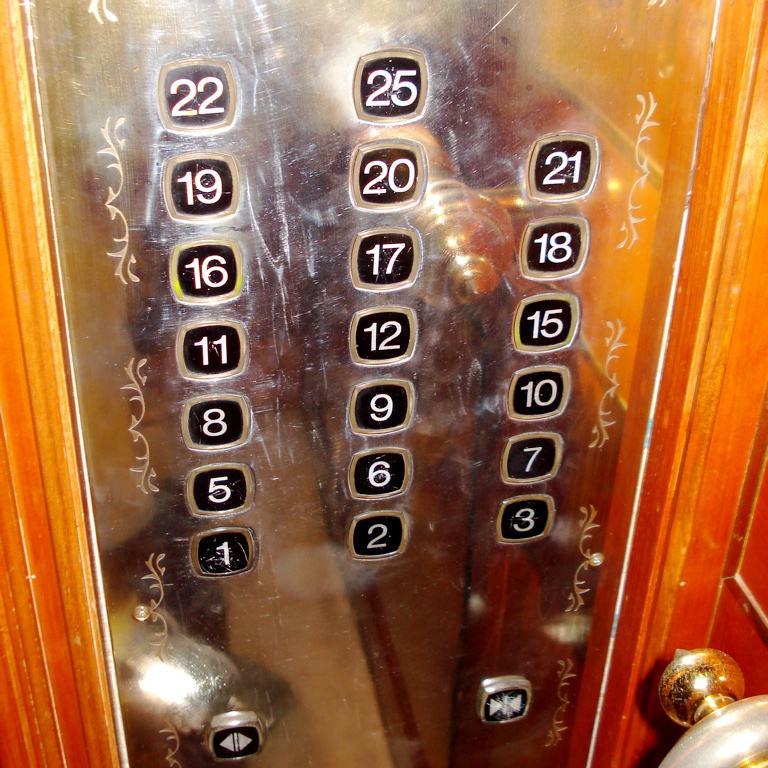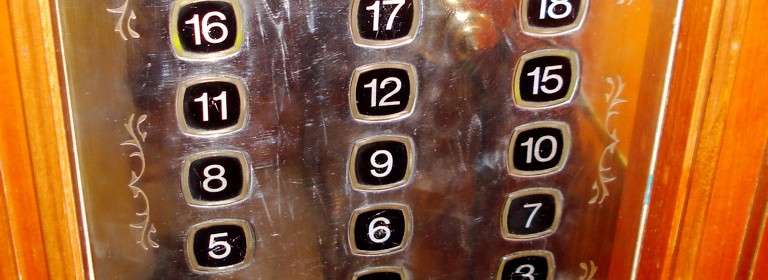
Everyone has a normal body temperature, but it can vary from person to person. The average body temperature is around 98.6°F (37°C). However, some individuals may have a lower than average body temperature, which can raise concerns about their health. In this article, we will discuss the reasons why your body temperature may always be low.
What is Body Temperature?

Body temperature refers to the temperature of your body, which is measured using a thermometer. It reflects the balance between heat production and heat loss in your body. Body temperature is affected by various factors such as age, time of day, and physical activity.
The Causes of Low Body Temperature

Low body temperature can be caused by various factors, including:
Hypothyroidism: Hypothyroidism is a condition in which your thyroid gland does not produce enough thyroid hormones. This can lead to a decrease in your body's metabolic rate, causing your body temperature to drop.
Adrenal insufficiency: Adrenal insufficiency is a condition in which your adrenal glands do not produce enough hormones. This can cause a decrease in your body's metabolic rate, leading to a drop in body temperature.
Diabetes: Diabetes can affect your body's ability to regulate temperature, leading to a drop in body temperature.
Malnutrition: Malnutrition can lead to a decrease in your body's metabolic rate, causing your body temperature to drop.
Alcoholism: Alcoholism can affect your body's ability to regulate temperature, leading to a drop in body temperature.
Anemia: Anemia is a condition in which your body does not have enough red blood cells to carry oxygen to your organs. This can cause a decrease in your body's metabolic rate, leading to a drop in body temperature.
Symptoms of Low Body Temperature

Low body temperature can cause various symptoms such as:
Feeling cold: You may feel cold even when the temperature is warm.
Fatigue: You may feel tired or weak.
Dizziness: You may feel lightheaded or dizzy.
Confusion: You may feel confused or disoriented.
Headache: You may experience headaches.
Diagnosis of Low Body Temperature
If you are concerned about your body temperature, you should consult your healthcare provider. Your healthcare provider may perform a physical examination and order blood tests to determine the underlying cause of your low body temperature.
Treatment of Low Body Temperature

The treatment of low body temperature depends on the underlying cause. Some treatments may include:
Medication: Your healthcare provider may prescribe medication to treat the underlying condition, such as hypothyroidism.
Dietary changes: Your healthcare provider may recommend dietary changes to improve your nutritional status.
Lifestyle changes: Your healthcare provider may recommend lifestyle changes such as quitting smoking or reducing alcohol consumption.
Prevention of Low Body Temperature
To prevent low body temperature, you should:
Dress appropriately: Wear warm clothing in cold weather.
Eat a balanced diet: Eat a diet rich in nutrients to maintain a healthy metabolic rate.
Exercise: Engage in physical activity to maintain a healthy metabolic rate.
Avoid alcohol: Avoid excessive alcohol consumption, which can affect your body's ability to regulate temperature.
Conclusion
Low body temperature can be caused by various factors such as hypothyroidism, adrenal insufficiency, and diabetes. It can cause symptoms such as feeling cold, fatigue, and dizziness. If you are concerned about your body temperature, you should consult your healthcare provider. Treatment depends on the underlying cause and may include medication, dietary changes, or lifestyle changes. To prevent low body temperature, you should dress appropriately, eat a balanced diet, exercise, and avoid excessive alcohol consumption.
Related video of Why Is My Body Temperature Always Low

Baseball is a favorite pastime for many Americans. It is a game that has been played for over a century, and it is steeped in tradition. One of the traditions of baseball is the use of the letter "K" to represent a strikeout. In this article, we will explore why the letter "K" is used for a strikeout in baseball.
The Origin of K in Baseball
The use of the letter "K" to represent a strikeout in baseball can be traced back to Henry Chadwick. Chadwick was a British-American sportswriter who became known as the "father of baseball statistics." In the late 1800s, Chadwick was looking for a way to keep track of strikeouts in a more efficient manner.
At the time, strikeouts were simply marked with an "S" in the box score. However, Chadwick found this to be confusing, as "S" was also used to represent a sacrifice hit. He wanted a new symbol that would be more distinct and would not be mistaken for another statistic.
Chadwick eventually settled on the letter "K" to represent a strikeout. He chose this letter because it was the last letter in the word "struck," which was commonly used in baseball at the time to describe a strikeout.
The Evolution of the K Symbol

Over time, the "K" symbol has evolved in baseball. Originally, it was written with a horizontal line through it, resembling an inverted "T." However, this was difficult to write and often resulted in a messy box score.
Eventually, the "K" symbol was simplified to a single vertical line. This made it easier to write and became the standard way to represent a strikeout in baseball.
Other Symbols for Strikeouts

While the "K" symbol is the most common way to represent a strikeout in baseball, there are other symbols that have been used over the years. For example, some scorekeepers use a backward "K" to represent a called third strike, while others use a forward "K" to represent a swinging strikeout.
Additionally, some scorekeepers use a "SO" symbol to represent a strikeout, while others use an "X" symbol. However, these symbols are much less common than the letter "K."
The Importance of Strikeouts in Baseball

Strikeouts are an important statistic in baseball. They are used to measure a pitcher's effectiveness and are often used in evaluating a pitcher's performance.
In addition, strikeouts are often seen as a sign of dominance. When a pitcher strikes out a batter, it shows that he has complete control over the game and is able to overpower the opposing team.
In Conclusion
The use of the letter "K" to represent a strikeout in baseball can be traced back to Henry Chadwick. Chadwick wanted a more distinct symbol to represent strikeouts and settled on the letter "K" because it was the last letter in the word "struck."
Over time, the "K" symbol has evolved in baseball, and it is now the standard way to represent a strikeout. While there are other symbols that have been used over the years, the letter "K" remains the most common way to represent a strikeout in baseball.
Related video of Why Is K Used For Strikeout In Baseball
North America is a continent located in the Northern Hemisphere and the Western Hemisphere. It is the third largest continent by area and the fourth largest by population. North America is home to 23 countries, including the United States, Canada, and Mexico. But why is it called North America?
Geography

The term "North America" was first used by the German cartographer Martin Waldseemüller in his 1507 world map. The map was the first to depict the Americas as separate continents from Asia and Europe. The name "America" was derived from the Latin version of the explorer Amerigo Vespucci's first name.
Geographically, North America is divided into three regions: Northern America, Central America, and the Caribbean. Northern America includes Canada, the United States, and Greenland. Central America includes seven countries: Belize, Costa Rica, El Salvador, Guatemala, Honduras, Nicaragua, and Panama. The Caribbean includes 13 island nations and 18 dependent territories.
History

The history of North America dates back to thousands of years ago when the first humans migrated to the continent. The first people to inhabit North America were the Native Americans, who have a rich history and culture. Europeans first arrived in North America in the late 15th century, and the continent became a major center of colonization and trade.
The United States became an independent country in 1776 after breaking away from British rule. Canada became a self-governing dominion in 1867 but remained a part of the British Empire until 1982. Mexico gained its independence from Spain in 1821.
Economy

North America has the largest economy in the world, with a combined GDP of approximately $25 trillion. The United States is the largest economy in the continent and the world, followed by Canada and Mexico. The continent is home to some of the world's largest companies, such as Apple, Microsoft, and ExxonMobil.
The economy of North America is driven by various industries, including finance, technology, healthcare, and energy. The continent is also a major tourist destination, with popular attractions such as the Grand Canyon, Niagara Falls, and New York City.
Conclusion
North America is a diverse and fascinating continent with a rich history and culture. Its name was derived from the Latin version of Amerigo Vespucci's first name, and it has been home to various civilizations throughout its history. The economy of North America is one of the largest in the world, and it is a major center of trade and tourism. Whether you are a resident or a visitor, there is always something new to discover in North America.
Related video of Why Is It Called North America

Introduction
Have you ever wondered why that bulge on the front of your neck is called an Adam's apple? Despite its name, it has nothing to do with the biblical story of Adam and Eve. In this article, we will explore the history and origins of the term "Adam's apple" and how it came to be associated with this prominent feature of the human anatomy.
The Origin of the Term

The term "Adam's apple" can be traced back to ancient Greece, where it was called "prominentia laryngea." In medieval times, it was known as "pomum Adami," which translates to "Adam's apple" in Latin. The term "Adam" was used to refer to the male human form, and "apple" referred to the rounded shape of the protrusion.
The Anatomy of the Adam's Apple

The Adam's apple is a protrusion on the front of the neck that is formed by the thyroid cartilage. This cartilage is larger in males than females, which is why the Adam's apple is more prominent in men. The thyroid cartilage is also responsible for protecting the vocal cords and helping to produce sound when we speak.
Cultural References

The Adam's apple has been the subject of many cultural references throughout history. In literature, it has been used to symbolize masculinity and strength. In art, it has been depicted in paintings and sculptures as a symbol of the human form. In music, it has been referenced in songs and lyrics as a symbol of love and desire.
Myths and Misconceptions

There are many myths and misconceptions surrounding the Adam's apple. One of the most common is that it is a sign of a deep voice. While it is true that the size of the thyroid cartilage can affect the tone of the voice, the Adam's apple itself has no direct impact on vocal range or quality. Another misconception is that the Adam's apple is more prominent in men who have a high level of testosterone. While testosterone can affect the size of the thyroid cartilage, it is not the only factor that determines the size of the Adam's apple.
Medical Issues

While the Adam's apple is generally considered a harmless and normal part of human anatomy, there are some medical issues that can affect it. One of the most common is thyroid cancer, which can cause a lump or growth on the thyroid cartilage. Other conditions that can affect the Adam's apple include thyroiditis, laryngitis, and vocal cord paralysis.
Conclusion
Despite its name, the Adam's apple has nothing to do with the biblical story of Adam and Eve. The term "Adam's apple" can be traced back to ancient Greece and medieval times, and it refers to the rounded shape of the protrusion on the front of the neck. While there are many myths and misconceptions surrounding the Adam's apple, it is a normal and harmless part of human anatomy. If you experience any medical issues related to your Adam's apple, it is important to seek medical attention from a qualified healthcare professional.
Related video of Why Is It Called Adam's Apple
/Hotdogs-GettyImages-645386655-5a04421913f1290037d8ad04.jpg)
The Origin of Hot Dog
Hot dogs are one of the most popular fast foods in America. They are typically served at sporting events, carnivals, and fairs. But have you ever wondered why they are called hot dogs? The origin of the name is a bit of a mystery, but there are a few theories.
One theory is that hot dogs were first called "dachshund sausages" because of their shape. Dachshunds are dogs with long, narrow bodies, and the sausage was said to resemble a dachshund. Eventually, the name was shortened to hot dog.
Another theory is that the name hot dog came from a cartoonist named T.A. Dorgan. In the early 1900s, he was at a baseball game and saw a vendor selling hot dogs. He drew a cartoon of a dachshund sausage in a bun, and he couldn't spell "dachshund," so he wrote "hot dog" instead.
The Evolution of Hot Dogs

Hot dogs have come a long way since they first appeared in the late 1800s. Originally, they were made with a mixture of pork and beef, but today, they can be made with a variety of meats, including chicken and turkey.
The way hot dogs are cooked has also evolved. In the early days, they were often boiled or steamed, but today, they can be grilled, fried, or even cooked in a microwave.
The Popularity of Hot Dogs

Hot dogs have become a staple of American culture. They are a symbol of summertime, baseball games, and backyard barbecues. In fact, Americans consume an estimated 20 billion hot dogs each year.
Hot dogs have also become a popular food item in other parts of the world. In Japan, for example, they are often served with a variety of toppings, including seaweed and mayonnaise.
The Nutritional Value of Hot Dogs

While hot dogs are a beloved food, they are not exactly a health food. They are high in fat and sodium, and many contain additives and preservatives. However, there are some healthier options available, such as turkey or chicken hot dogs.
It is also important to be mindful of portion sizes when eating hot dogs. One hot dog can contain as many as 300 calories, so it is best to enjoy them in moderation.
The Future of Hot Dogs

As with any food item, hot dogs are constantly evolving. In recent years, there has been a trend towards healthier and more sustainable food options. Some companies are now making hot dogs with plant-based ingredients, such as soy or pea protein.
There are also many new and creative ways to enjoy hot dogs. Some restaurants are serving them with gourmet toppings, such as truffle oil and foie gras.
The Bottom Line
Hot dogs are a beloved food item that has been around for over a century. While the origin of the name is a bit of a mystery, there is no denying their popularity. Whether you enjoy them at a baseball game, a backyard barbecue, or a fancy restaurant, hot dogs are sure to satisfy your cravings.
Related video of Why Is It Called A Hot Dog

Introduction
Misspelling is a common mistake that many people make while writing. It refers to the incorrect spelling of words that are supposed to be spelled in a certain way. Misspelling can occur due to various reasons such as lack of knowledge, carelessness, and ignorance of the correct spelling. In this article, we will discuss why misspelling is wrong and its impact on our daily lives.
The Importance of Correct Spelling

The importance of correct spelling cannot be overstated. Correct spelling is essential for effective communication in any language. It ensures that the message conveyed is clear and understandable. Misspelled words can change the meaning of a sentence and cause confusion. It can also make the writer appear uneducated or careless, which can be detrimental to their reputation.
The Impact of Misspelling in School

Misspelling can have a significant impact on a student's academic performance. Poor spelling skills can lead to low grades in language-based subjects such as English, history, and social studies. It can also affect a student's ability to communicate effectively in written assignments, which can impact their overall grade. Misspelling can also lead to a lack of confidence in a student's writing ability, which can affect their future academic pursuits.
The Impact of Misspelling in the Workplace

Misspelling can also have a negative impact on one's professional life. In the workplace, poor spelling skills can lead to misunderstandings, error-prone documents, and unprofessionalism. It can also hinder career growth, as it can reflect poorly on an individual's attention to detail, professionalism, and communication skills.
The Impact of Misspelling in Social Media

With the rise of social media, misspelling has become more prevalent. Social media platforms such as Twitter, Facebook, and Instagram have limited character counts, which can make it difficult to convey a message effectively. Misspelling can make it harder for the reader to understand the message or even cause the message to be misinterpreted. It can also reflect poorly on the writer, as it can be seen as a lack of attention to detail or intelligence.
Why Misspelling is Wrong

Misspelling is wrong because it can lead to confusion, misunderstandings, and misinterpretation of the message. It can make the writer appear uneducated, careless, and unprofessional. Misspelling can also have a negative impact on one's academic and professional life, hindering career growth and academic performance. Therefore, it is essential to ensure that all words are spelled correctly in any form of written communication.
How to Avoid Misspelling

There are several ways to avoid misspelling. Firstly, it is important to learn the correct spelling of words. This can be done by reading books, dictionaries, and other literature that contains correct spellings. Secondly, spell-checking tools can be used to ensure that all words are spelled correctly. Lastly, proofreading and editing can be done to check for any errors or mistakes before submitting any written work.
Conclusion
In conclusion, misspelling is wrong because it can lead to confusion, misunderstandings, and misinterpretation of the message. It can also have a negative impact on one's academic and professional life. Therefore, it is essential to ensure that all words are spelled correctly in any form of written communication. By learning the correct spelling of words, using spell-checking tools, and proofreading, we can avoid misspelling and ensure effective communication.
Related video of Why Is Incorrectly Spelled Wrong
Have you ever wondered why the name Richard is commonly shortened to Dick? It's a strange and somewhat confusing nickname that has been used for centuries. In this article, we will explore the origins of this nickname and the various theories that exist about its meaning.
The Origins of the Nickname
The nickname Dick has been used to refer to people named Richard since at least the 16th century. It is believed to have originated as a rhyming nickname, with Richard being shortened to Rick and then to Dick. This theory is supported by the fact that many other rhyming nicknames were popular during this time, such as Will for William and Jack for John.
Another theory is that the nickname Dick was derived from the Old English word "dic," which meant ditch or trench. This theory suggests that the nickname was originally used to describe someone who lived near a ditch or trench.
The Meaning of the Nickname

There are various theories about the meaning of the nickname Dick. Some people believe that it was originally used as a term of endearment, while others believe that it was used as an insult. Some historians have suggested that it may have been used to describe someone who was cunning or sly.
One popular theory is that the nickname was used as a reference to the size of a man's penis. This theory is supported by the fact that in the 16th century, the word "dick" was used as a slang term for penis. However, there is no concrete evidence to support this theory.
The Use of the Nickname Today

Despite its somewhat confusing origins and meaning, the nickname Dick is still widely used today. It is often used as a term of endearment between friends, and it is also used as a shortened form of the name Richard in many English-speaking countries.
However, it's worth noting that the nickname has become less popular in recent years. This is likely due to the fact that it has been associated with negative connotations, such as being used as a derogatory term for a man's penis.
Conclusion
The origins and meaning of the nickname Dick may be somewhat unclear, but it remains a widely used nickname for people named Richard. Whether you find the nickname endearing or confusing, it's interesting to consider the various theories about its origins and meaning.
Related video of Why Is Dick Short For Richard
/GettyImages-488272397-59282a463df78cbe7e592e13.jpg)
If you have ever been to Chicago or heard about this city, then you must have wondered why it is called the Windy City. So, what is the reason behind this nickname? Let's find out.
The Origin of the Nickname

Many theories exist about the origin of the nickname "Windy City." One of the most popular theories is that Chicago got its nickname from the strong and gusty winds that blow off Lake Michigan.
Another theory suggests that the term "windy" was used to describe the city's politicians who were known for their long-winded speeches and were full of hot air. The term "Windy City" was used to describe the city's politicians, and over time, it became synonymous with the city itself.
The Windy Weather of Chicago

Chicago is known for its harsh winter weather and strong winds. The city is located on the shores of Lake Michigan, which makes it vulnerable to cold air masses and strong winds. The winds can reach up to 60 mph, making it one of the windiest cities in the United States.
The windchill factor in Chicago can make the temperature feel much colder than it actually is. During the winter months, the windchill factor can drop to as low as -50°F, making it feel like the city is in the middle of a blizzard.
The Effect of Wind on the City

The strong winds in Chicago have had a significant impact on the city's architecture. The city's skyscrapers are designed to withstand the strong winds that blow off Lake Michigan. The Willis Tower, formerly known as the Sears Tower, has the ability to sway up to 3 feet in either direction during strong winds.
The wind also affects the city's transportation system. The Chicago River is often closed to boat traffic during strong winds, and the city's airports can experience delays and cancellations due to the windy weather.
Conclusion
Chicago's nickname, the Windy City, has been around for over a century, and it has become synonymous with the city itself. The city's strong winds and harsh winter weather have had a significant impact on its architecture, transportation system, and daily life. So, the next time you visit Chicago, be prepared for the windy weather and enjoy the city's unique charm.
Related video of Why Is Chicago Called The Windy City
Alcohol has been a part of human culture for thousands of years. From ancient civilizations to modern day, alcohol has played a significant role in social gatherings, celebrations, and even religious ceremonies. But have you ever wondered why alcohol is often referred to as "booze?" In this article, we will explore the origins of this term and the various theories behind its usage.
The Origin of "Booze"

The term "booze" first appeared in the English language in the 14th century, but it wasn't used to refer to alcohol until the 17th century. The origin of the word is uncertain, but there are a few theories that attempt to explain its usage.
One theory is that "booze" comes from the Middle English word "bouse," which means to drink to excess. Another theory is that it comes from the Dutch word "būsen," which means to drink heavily. Regardless of its origin, "booze" has become a common term for alcohol in many English-speaking countries.
Why Use the Term "Booze"?

There are several theories as to why the term "booze" became popular for referring to alcohol. One theory is that it was used to describe the feeling of being intoxicated. When someone drinks too much alcohol, they may feel dizzy, disorientated and unsteady on their feet. This may have led to the word "booze" being used to describe the sensation of being drunk.
Another theory is that the term "booze" was used to describe the process of distilling alcohol. Before modern distilling methods were developed, alcohol was often made by fermenting fruits, grains or other organic materials. The process of distilling involves heating the fermented mixture to create a concentrated form of alcohol. This process may have been described as "boiling" or "boozing" the mixture.
How "Booze" Became Popular

Regardless of its origin, the term "booze" became a popular way to refer to alcohol in the 19th century. During this time, the temperance movement was gaining momentum, and many people were advocating for the prohibition of alcohol. However, the popularity of the term "booze" suggests that many people were still consuming alcohol despite the efforts of temperance advocates.
The term "booze" has continued to be used to refer to alcohol throughout the 20th and 21st centuries. It has been used in movies, music, and literature, and has become a common part of the English language.
Conclusion
So why is alcohol called "booze?" The origins of the term are uncertain, but it has become a popular way to refer to alcohol in many English-speaking countries. Whether it comes from the Middle English word "bouse" or the Dutch word "būsen," the term "booze" has been used for centuries to describe the effects of alcohol consumption. Despite efforts to prohibit or limit alcohol consumption, the term "booze" continues to be a part of our cultural lexicon.
Related video of Why Is Alcohol Called Booze?
Have you ever wondered why the number 4 is considered unlucky in some cultures? While it may seem like just another number to some, in certain parts of the world, the number 4 is associated with bad luck and even death. Let's explore the reasons behind this superstition.
The Number 4 in Chinese Culture

In Chinese culture, the number 4 is considered unlucky because it sounds similar to the word for death. The pronunciation of the word "four" in Chinese is very similar to the word for "death," which is why it is avoided at all costs. It is common for buildings to skip the fourth floor and for hospitals to avoid assigning the number 4 to patient rooms.
The Number 4 in Japanese Culture
Similarly, in Japanese culture, the number 4 is considered unlucky because it sounds similar to the word for "death." The pronunciation of the word "four" in Japanese is very similar to the word for "death," which is why it is avoided. It is common for buildings to skip the fourth floor and for hospitals to avoid assigning the number 4 to patient rooms.
The Number 4 in Korean Culture

In Korean culture, the number 4 is also considered unlucky because it sounds similar to the word for "death." The pronunciation of the word "four" in Korean is very similar to the word for "death," which is why it is avoided. It is common for buildings to skip the fourth floor and for hospitals to avoid assigning the number 4 to patient rooms.
The Number 4 in Western Culture

While the number 4 is not typically associated with bad luck in Western culture, it is still considered unlucky in some instances. For example, some people believe that it is bad luck to receive four red flowers, as it symbolizes death. Additionally, in some Western cultures, it is believed that breaking a mirror will bring seven years of bad luck, which is also associated with the number 4.
Other Superstitions Involving the Number 4

Aside from its association with death, the number 4 is also believed to be unlucky for other reasons. In some cultures, it is believed that giving a gift containing 4 items is bad luck. Additionally, some people believe that starting a new project or job on the fourth day of the month will bring bad luck.
Conclusion
While the superstition surrounding the number 4 may seem strange to those outside of certain cultures, it is important to respect and understand these beliefs. Whether or not you believe in the power of numbers and superstitions, it is always important to be respectful of other cultures and their beliefs.
Related video of Why Is 4 An Unlucky Number
Have you ever been in a quiet room and your stomach suddenly growls? It can be embarrassing, but it's a normal bodily function. Let's dive into the reasons why your stomach growls and what you can do to prevent it.
What Causes Stomach Growling?

Stomach growling, also known as borborygmi, is the sound your digestive system makes when food and gas move through your intestines. Your stomach and small intestine are always making noises, but you can only hear them when there's no other noise around.
When you eat, your stomach and small intestine start to digest the food. The movement of food and gas through your digestive system creates a rumbling noise. The muscles in your digestive system also contract as they move the food and gas along, which can create a gurgling sound.
Why Does Your Stomach Growl When You're Hungry?

When you're hungry, your stomach is empty, and the digestive system doesn't have any food to work on. This means that the muscles in your digestive system are more active, trying to move any remaining food or gas out of your system. The increased activity can create more noise than usual, leading to stomach growling.
Why Does Your Stomach Growl When You're Nervous?

When you're nervous or anxious, your body goes into fight or flight mode. This means that your body is diverting blood flow away from your digestive system and to other areas of your body, like your muscles and brain. The lack of blood flow to your digestive system can slow down digestion, leading to more gas buildup and stomach growling.
Why Does Your Stomach Growl After Eating?

After you eat, your digestive system is working hard to break down the food and absorb nutrients. The movement of food and gas through your digestive system can create noise, leading to stomach growling. Eating certain foods, like high-fiber or high-fat foods, can also lead to more gas buildup and stomach growling.
How Can You Prevent Stomach Growling?

While stomach growling is a normal bodily function, it can be embarrassing in certain situations. Here are some tips to prevent stomach growling:
- Eat smaller, more frequent meals throughout the day instead of three large meals
- Avoid high-fiber or high-fat foods that can lead to more gas buildup
- Stay hydrated by drinking plenty of water
- Avoid carbonated drinks that can lead to more gas buildup
- Avoid chewing gum, as it can lead to more air being swallowed and more gas buildup
Conclusion
Stomach growling is a normal bodily function that occurs when food and gas move through your digestive system. While it can be embarrassing, there are ways to prevent it. By eating smaller, more frequent meals, avoiding certain foods, staying hydrated, and avoiding chewing gum, you can reduce the likelihood of stomach growling. Remember that stomach growling is nothing to be ashamed of and is a sign that your digestive system is working properly.